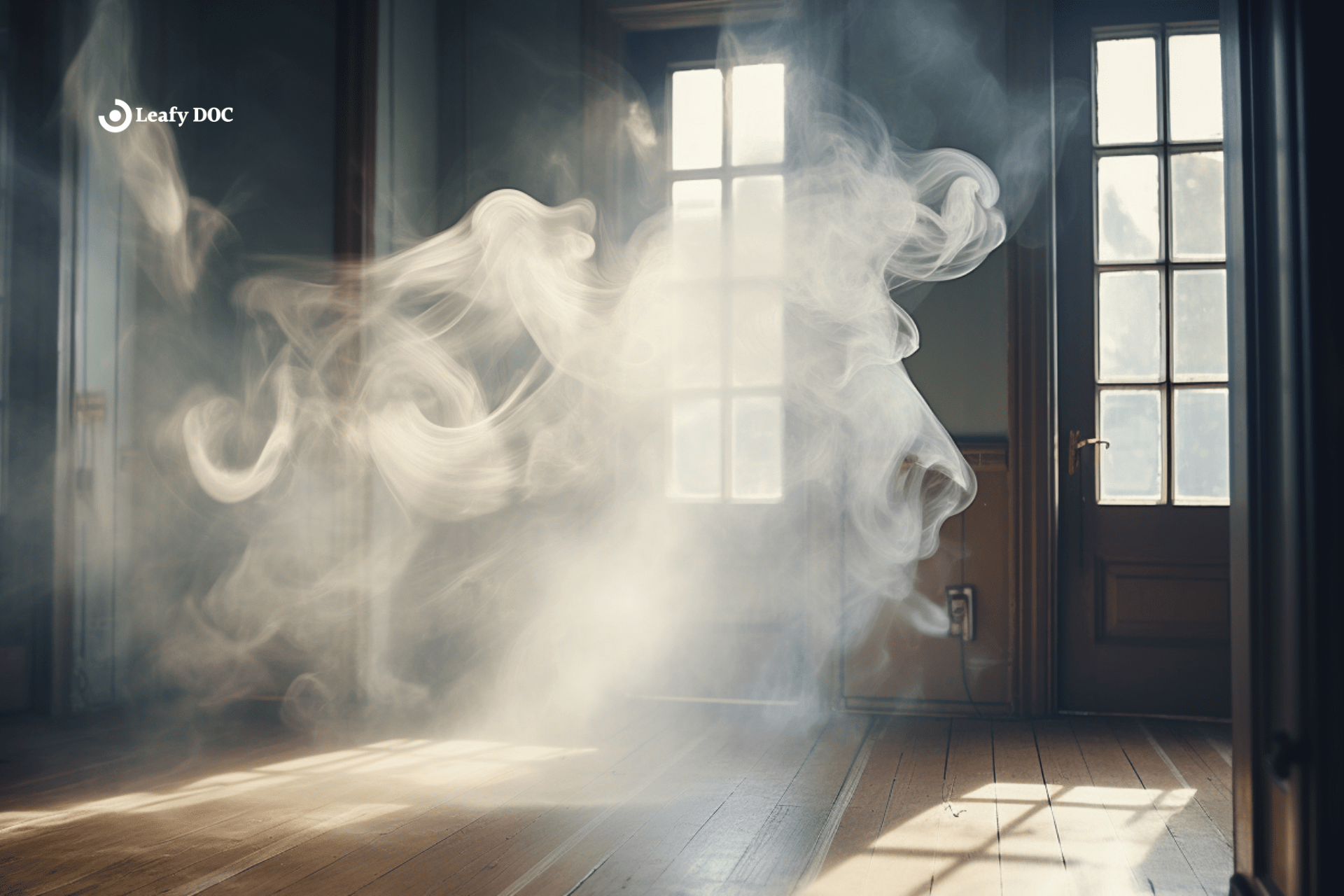Can You Fail A Drug Test From Secondhand Smoke?
by Haley Mills · July 25, 2023
Find out the surprising truth: Can secondhand smoke make you fail a drug test? Discover the unexpected answer here!

Have you ever wondered if you can fail a drug test just by being around someone who is smoking marijuana? The answer may surprise you. Secondhand smoke can potentially affect drug test results, particularly when it comes to detecting THC, the psychoactive compound found in cannabis. In this article, we will delve into the intricacies of drug metabolism and explore the factors that can influence drug test outcomes. Additionally, we will examine the levels of THC present in secondhand smoke, discuss case studies and research findings, and provide tips on minimizing exposure to secondhand smoke. So, if you want to know the truth about whether secondhand smoke can cause you to fail a drug test, keep reading to find out more.
Understanding Drug Metabolism and Secondhand Smoke
So, you’re probably wondering if you can fail a drug test from secondhand smoke, right? Well, let’s dive into the fascinating world of drug metabolism and see what science has to say about it.
When you smoke or ingest drugs, they are broken down in your body through a process called metabolism. This process converts the drugs into compounds known as metabolites, which can be detected in drug tests. However, the amount of secondhand smoke you would need to inhale in order to test positive for drugs is highly unlikely.
Secondhand smoke contains a much lower concentration of drugs compared to what is directly inhaled. In fact, the amount of drugs present in secondhand smoke is so minimal that it is unlikely to result in a positive drug test. Additionally, the metabolites produced from secondhand smoke are usually present in even lower levels.
Furthermore, drug tests are designed to detect specific metabolites that are only produced when drugs are directly ingested or inhaled. These metabolites are unique to the drug being tested for and are not typically found in secondhand smoke. Therefore, even if you are exposed to secondhand smoke, it is doubtful that it would result in a positive drug test.
In conclusion, the chances of failing a drug test from secondhand smoke are extremely low. The concentration of drugs and metabolites in secondhand smoke is too minimal to trigger a positive result. However, it’s important to note that drug tests can vary in sensitivity and detection thresholds, so it’s always best to avoid any exposure to drugs or secondhand smoke if you want to ensure a negative drug test result.
Factors Affecting Drug Test Results
Factors affecting drug test results include various variables such as individual metabolism, the type and amount of substance consumed, and the timing of the test in relation to substance use. Individual metabolism plays a significant role in how quickly the body processes and eliminates drugs. Some people have faster metabolisms, which means the substances may be cleared from their system more rapidly, while others may have slower metabolisms, resulting in a longer detection window. Additionally, the type and amount of substance consumed can impact drug test results. Different drugs have different detection windows, meaning they can be detected in the body for varying periods of time. For example, marijuana can typically be detected in urine for up to 30 days, while other substances may only be detectable for a few days. The amount of substance consumed can also affect the duration of detectability.
The timing of the drug test in relation to substance use is another important factor. Drug tests can detect the presence of drugs for a certain period of time after use, known as the detection window. It’s important to note that the detection window can vary depending on the type of test being used. For example, urine tests can typically detect drug use within the past few days to a few weeks, while hair tests have a much longer detection window of several months. If a drug test is taken shortly after being exposed to secondhand smoke, it is unlikely to result in a positive result. However, suppose a person is in an enclosed space with heavy marijuana smoke for an extended period of time. In that case, trace amounts of THC can be absorbed into their system and potentially show up on a drug test. While secondhand smoke exposure may theoretically result in a positive drug test, the likelihood is low unless there has been significant and prolonged exposure.
Levels of THC in Secondhand Smoke
Exposure to THC in the air can vary depending on the concentration of cannabis smoke present. Secondhand smoke from marijuana contains THC, the psychoactive compound found in cannabis. However, the levels of THC in secondhand smoke are generally much lower than direct marijuana use.
Several studies have been conducted to measure the levels of THC in secondhand smoke. One study found that after individuals smoked marijuana in a controlled environment, the levels of THC in the air were significantly higher compared to average secondhand smoke exposure. Another study found that even in an unventilated room, the levels of THC in the air were below the threshold required for a positive drug test.
While it is possible to detect THC in the air after exposure to secondhand smoke, the levels are typically too low to result in a positive drug test. However, it is important to note that the sensitivity of drug tests may vary, and some tests may be able to detect even trace amounts of THC. Additionally, prolonged exposure to secondhand smoke in an enclosed space or in close proximity to heavy marijuana use may increase the likelihood of THC being detected in a drug test. Therefore, while the risk of failing a drug test from secondhand smoke is generally low, it is still advisable to avoid prolonged exposure to marijuana smoke if you are concerned about the possibility of a positive drug test.
Case Studies and Research Findings
Take note of the case studies and research findings, as they provide valuable insights into the potential implications of passive inhalation. Several studies have investigated the possibility of failing a drug test due to secondhand smoke exposure. One study published in the Journal of Analytical Toxicology found that non-smokers who were exposed to high levels of marijuana smoke in an unventilated room tested positive for THC in their urine. The study concluded that passive inhalation of marijuana smoke can result in detectable levels of THC in the body, which could potentially lead to a failed drug test.
Another case study published in the British Medical Journal reported a similar finding. The study followed a non-smoker who lived with heavy marijuana smokers. Despite never using marijuana himself, the individual consistently tested positive for THC in his urine drug tests. This case suggests that secondhand smoke exposure can indeed lead to a positive drug test result.
While these case studies and research findings provide evidence of the potential for failing a drug test from secondhand smoke, it is essential to note that the likelihood of this happening may vary depending on factors such as the amount and duration of exposure, ventilation in the environment, and individual differences in metabolism. Additionally, drug testing methods have become more sophisticated over time, making it less likely for trace amounts of THC from secondhand smoke to trigger a positive result. Nonetheless, it is still advisable to avoid or minimize exposure to marijuana smoke if you are concerned about the possibility of failing a drug test.
Tips for Minimizing Exposure to Secondhand Smoke
To minimize your exposure to secondhand smoke, try implementing these helpful tips. First, avoid spending time in places where smoking is allowed. This includes bars, clubs, and other venues where smoking is common. If you find yourself in a situation where smoking is unavoidable, try to position yourself as far away from the smokers as possible. This can help reduce the amount of secondhand smoke you inhale. Additionally, make sure to open windows or use fans to increase ventilation in indoor spaces, as this can help dissipate the smoke.
Another tip is to communicate your concerns to those around you. Let friends, family, and coworkers know that you are trying to minimize your exposure to secondhand smoke and ask for their support. This can involve asking them to smoke outside or in designated smoking areas, or even requesting that they refrain from smoking around you altogether. It’s important to remember that secondhand smoke can linger in clothing, furniture, and other surfaces, so regularly cleaning and washing these items can also help reduce your exposure. By implementing these tips, you can significantly minimize your exposure to secondhand smoke and reduce the potential risk of failing a drug test.
Frequently Asked Questions
Can the presence of THC in secondhand smoke be detected in a drug test?
Yes, the presence of THC in secondhand smoke can be detected in a drug test. Even though the amount may be smaller than direct usage, it can still produce a positive result.
How long does THC remain detectable in the body after exposure to secondhand smoke?
THC can be detected in the body briefly after exposure to secondhand smoke. However, the concentration of THC is typically very low, making it unlikely to result in a failed drug test.
Are drug test results affected by the amount of secondhand smoke exposure?
Yes, the amount of secondhand smoke exposure can affect drug test results. If you are exposed to a significant amount of secondhand smoke, it may result in a positive drug test.
Are there any specific medications or substances that can trigger a false positive on a drug test due to secondhand smoke exposure?
Yes, there are certain medications and substances that can cause a false positive on a drug test if exposed to secondhand smoke. It is crucial to inform the testing facility of any medications taken to avoid inaccuracies.
Can the levels of THC in secondhand smoke vary depending on the method of marijuana consumption (e.g., smoking vs. vaping)?
Yes, the levels of THC in secondhand smoke can vary depending on the method of marijuana consumption. Smoking generally produces more THC in the smoke compared to vaping.
Last Updated: August 8, 2024
Get Approved for Your Medical Marijuana Card in Minutes!

Get Your Medical Card
Connect with a licensed physician online in minutes

Like This Article?
Share with your friends
Table of Contents
Keep Reading
-
Stay Awake And Lifted: Conquer Weed-induced Fatigue!
Tired of feeling tired after smoking? Discover how to beat weed-induced fatigue and stay energized. Click now for the ultimate solution!
-
4 Steps to Get Your RI Medical Marijuanas Card Online
Easily apply for your RI medical marijuanas card online with our step-by-step guide.
-
A Step-by-Step Guide To Obtaining A Medical Marijuana Card For Pain Management
Get relief from pain with our step-by-step guide on obtaining a medical marijuana card for pain management. Click now and say goodbye to suffering!



